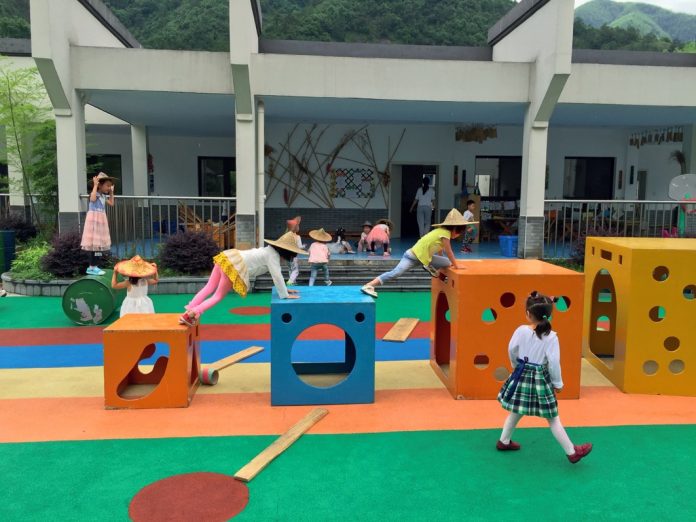Melanie Butler looks at the market for tots
From next year, infants in Madrid state nurseries will be taught English using a new methodology, and native speaker assistants will be hired to focus on pronunciation, according to the Spanish press.
English language teaching is already the norm for children under three in Madrid state nurseries, but the current teaching method is not working. Neither of these facts should come as a surprise.
Across the world, the age at which children start learning English is dropping. The emergence of preschool English is most notable in countries, like China, where the majority of preschools are privately run.
In 2017, China had 30 million children in private preschools, with an estimated 3 million Chinese students attending preschools which offer some English language teaching with a native speaker. Perhaps 1 million more are enrolled in bilingual preschools with a ‘native speaker teacher’ permanently present. These are the best paid teaching jobs in China, and all you need to get one is a ‘native speaker’ passport, a degree and a CELTA equivalent.
Do these ‘teachers’ have a clue what they are doing?
In many countries, including Taiwan and Korea, where English language preschools are illegal, the middle class are increasingly sending their children to private language schools instead. The Korean press reports that preschool English classes now cost more than a medical degree.
Private language schools outside the English-speaking world which are not offering preschool language classes may find their days are numbered. Most British Council schools in Asia already do so, and the Council set up two fully bilingual preschool programmes.
The patter of tiny feet is also being heard in language travel. Dublin City University enrolls children from the age of six as part of its family courses. Burlington School in London is taking ‘family course’ children from age four. Meanwhile, an increasing number of Japanese mothers are taking their babies to English courses in the Philippines, according to press reports.
Is any of this a good idea?
Research by Professor Patrica Kuhl has shown that children up to the age of three can learn to naturally discriminate and reproduce sounds in a second language when hyper-stimulated by native speakers using ‘parentese’.
Bilingual preschool programmes with two trained preschool teachers in the room are well established. There is some evidence that, since younger children learn entirely by ear, native speaker or bilingual classes offer an advantage with children under six.
But as for using teachers who are trained in adult communicative methodology, including explicit grammar based on verb tenses and a lot of emphasis on reading and writing?
As one professor of early years education told us: “I can’t think of anything worse”.





